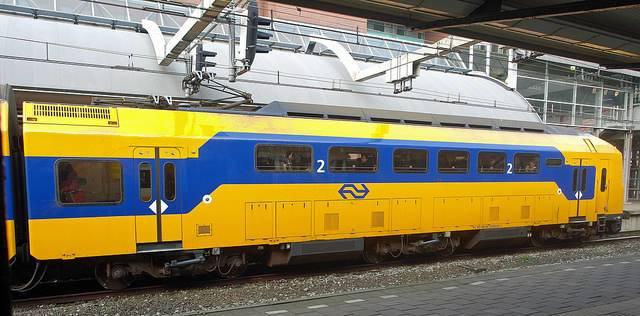
When one thinks about the impact the global transportation sector has on climate change, it is easy to give the global railway sector a free pass. After all, it is intuitive that moving people and products by rail is far more efficient and environmentally friendly than using diesel-fueled trucks and ships, right?
But in the European Union, the region’s rail industry says it is not satisfied with estimates suggesting it contributes only 1.5 percent to the EU’s total carbon emissions, while taking up an approximate 8.5 percent market share of the entire transport sector.
On that point, a coalition of 11 companies in the rail sector, Railsponsible, says it is committed to do what it can to support the Paris Agreement in limiting global average temperatures this century to under 2°C. The group, which is a BSR-facilitated initiative, says it has three broad goals: commit to a clean energy target, develop a long-term energy productivity target and become more transparent about climate change information.
The question then arises: so what exactly do these railway companies, which together spend €36 billion ($41.6 billion) on procurement, have planned?
To start, various Railsponsible members have developed various goals, and remember, such targets do not apply solely to the rails. For example, the Dutch rail operator Nederlandse Spoorwegen (NS) has set a zero emissions goal for its buildings and mobility, the latter of which encompasses trains, automobiles, and buses. NS’s German counterpart, Deutsche Bahn, has more long-term objectives, saying it will use only 100 percent renewables by 2050 (probably understandable, as Germany is about 8.5 times the size of its northwestern neighbor).
Then there are the relative targets, which for the most part align with the aforementioned energy productivity goals. France’s rail giant, Alstom, says it is focused on decreasing its services’ energy consumption requirements 20 percent by 2020, using 2014 figures as a baseline. Knorr-Bremse, a braking systems manufacturer based in Germany, has pledged it will continue to boost production in 2020 without an increase in carbon emissions, based on 2015 benchmarks.
In addition, Railsponsible says it will enact policies that will help the rail sector become more sustainable across its entire value chain. These include a minimum sustainability requirement for all suppliers; certification requirements for all major energy-intensive suppliers; and the introduction of a greenhouse gas emissions assessment clause in all of its members’ transports and logistics contracts.
To date, Railsponsible’s largest achievement is the effect it is having on the industry’s supply chain. In a recently issued climate change position paper, the group said 859 suppliers and counting have joined the coalition’s assessment program – and such buy-in demonstrations that having a more sustainable supply chain means cajoling and collaboration with suppliers, not coercion.
Image credit: Nik Morris/Flickr

Leon Kaye has written for 3p since 2010 and become executive editor in 2018. His previous work includes writing for the Guardian as well as other online and print publications. In addition, he's worked in sales executive roles within technology and financial research companies, as well as for a public relations firm, for which he consulted with one of the globe’s leading sustainability initiatives. Currently living in Central California, he’s traveled to 70-plus countries and has lived and worked in South Korea, the United Arab Emirates and Uruguay.
Leon’s an alum of Fresno State, the University of Maryland, Baltimore County and the University of Southern California's Marshall Business School. He enjoys traveling abroad as well as exploring California’s Central Coast and the Sierra Nevadas.














